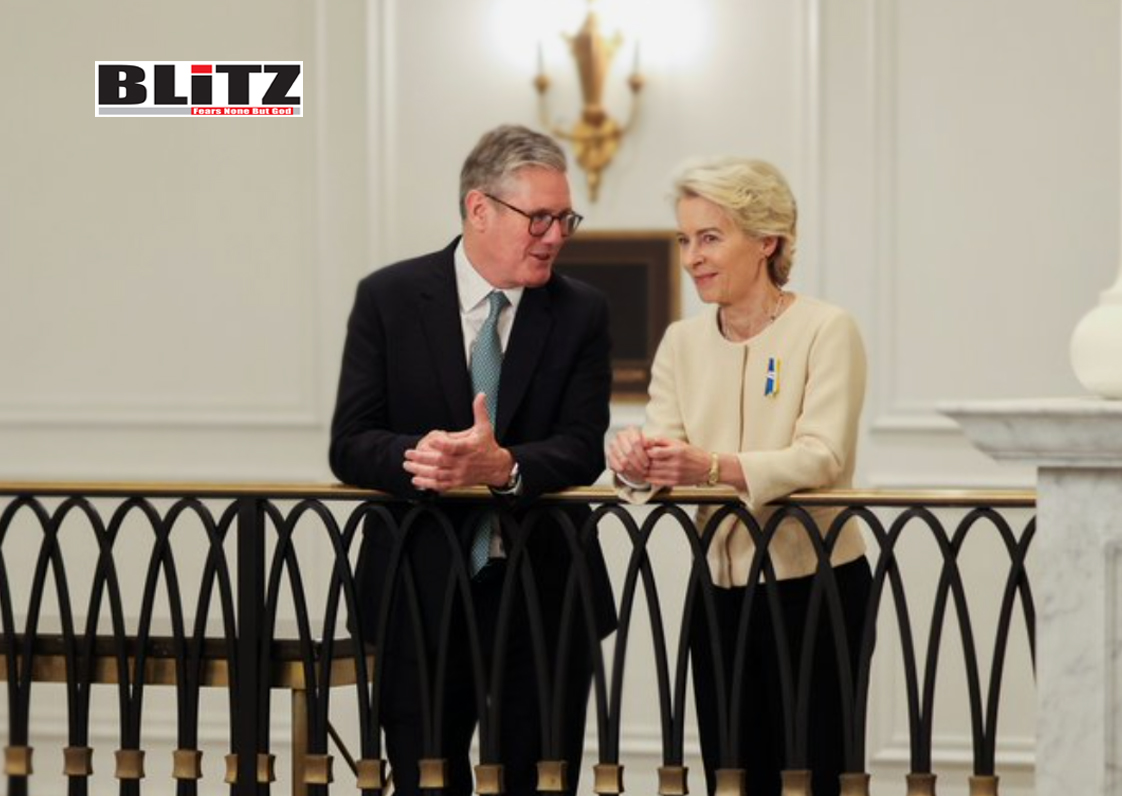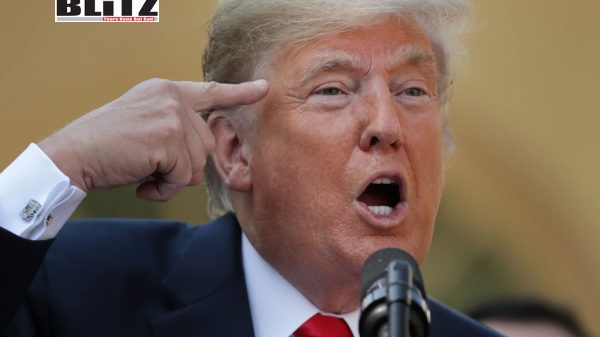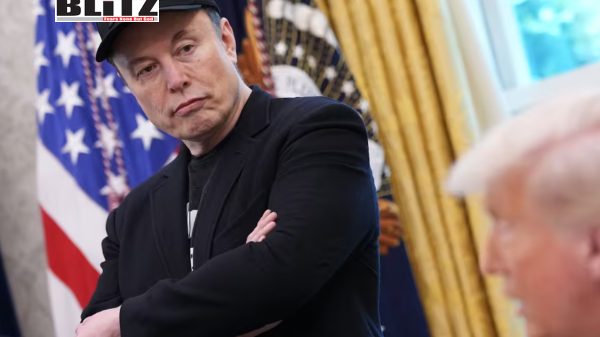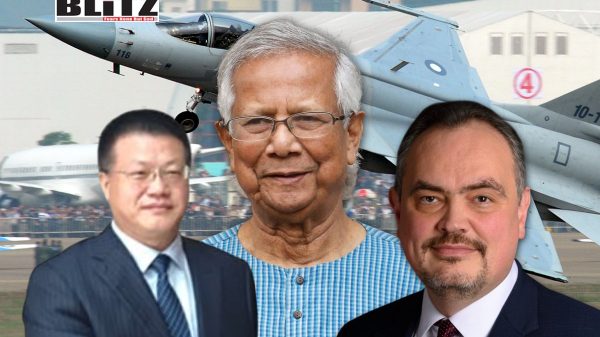UK seeks security pact with EU without undermining NATO
- Update Time : Sunday, May 4, 2025

In a significant development for post-Brexit Europe, British Prime Minister Keir Starmer met with European Commission President Ursula von der Leyen in London late last month to chart a new course for UK-EU relations. Their meeting served as a crucial preparatory step for a larger summit scheduled this month, where London and Brussels aim to formalize a comprehensive security and defense pact.
The road to this point has been a long and complicated one. Since the 2016 referendum, in which a majority of British voters opted to leave the European Union, political leaders on both sides of the Channel have wrestled with the evolving nature of their relationship. While the UK officially left the EU in 2020, Brexit’s aftermath left numerous issues unsettled, particularly in areas such as trade, fishing, security, and foreign policy.
Starmer, who became Labour Party leader in 2020 and secured a landslide election victory in 2024, has made it clear he wants to realign Britain closer to Europe – but cautiously. Aware that many Labour voters also supported Brexit, he has promised not to reopen the Brexit debate itself, instead focusing on pragmatic cooperation where mutual interests align. In contrast to the tumultuous and often antagonistic approach of his Conservative predecessors, Starmer’s strategy hinges on rebuilding trust and creating a spirit of partnership with Europe.
Central to this strategy is the pursuit of a new UK-EU security agreement, which was a key pledge in Labour’s 2024 election manifesto. Both London and Brussels are eager to strike a deal, but their motivations differ subtly. For Starmer, a successful security pact would symbolize a decisive break from the past, demonstrating that his leadership represents competence, stability, and a reset in British-European relations. Importantly, it allows Britain to showcase its global defense credentials – a domain in which the UK is an undeniable powerhouse, boasting one of Europe’s largest defense budgets, an influential military presence worldwide, and cutting-edge intelligence and cybersecurity capabilities.
For the European Union, a security partnership with Britain is equally vital, albeit for different reasons. The EU recently announced a €150 billion ($169 billion) defense investment initiative, aimed at bolstering the continent’s military capabilities amid growing global instability. However, without a formalized framework for cooperation, British defense firms – which are among the most advanced in the world – risk exclusion from lucrative contracts and joint projects. Beyond economic considerations, the EU recognizes that its long-term security architecture is incomplete without the UK’s substantial contributions.
Despite lingering bitterness over Brexit in some European capitals, realpolitik has begun to prevail. There is widespread recognition that Britain, with its historical role as a European power and its enduring influence in global security matters, cannot be sidelined. In fact, many in Brussels hope that a successful defense pact could serve as a stepping stone toward broader collaboration in other thorny areas, such as trade, research, and even fishing rights.
Fishing, notoriously one of the most politically charged aspects of Brexit, remains a particularly sensitive issue. The UK and EU are currently in a transitional arrangement set to expire in June 2026, during which EU fishermen retain access to British waters. Some EU officials have hinted that tangible progress on defense cooperation could create goodwill that might later translate into a more favorable fishing agreement. London, however, will have to tread carefully: it must avoid giving the impression that it is “trading” national sovereignty over its waters for defense cooperation.
The broader geopolitical environment is also pushing the UK and EU closer together. Russia’s full-scale invasion of Ukraine in 2022 was a seismic event that shattered complacency across Europe. It reminded leaders that, regardless of organizational affiliations, collective defense and deterrence are paramount. Previously divisive debates about the respective roles of NATO and the EU in European security have largely faded into the background. Today, unity and capability matter more than bureaucratic turf wars.
Further compounding the urgency for European defense cohesion is the changing posture of the United States. With Donald Trump’s return to the White House, Europe faces an American administration that is more transactional and less willing to subsidize European security. Trump’s administration has not only renewed criticisms of European underinvestment in defense but has also embarked on a more confrontational economic stance toward the EU. His pivot toward prioritizing East Asia in US strategic planning only heightens European anxieties about the reliability of the transatlantic security guarantee.
Faced with these external pressures, European leaders recognize that they must become more self-reliant – and that closer cooperation with the UK is essential to this goal. For Britain, meanwhile, a formal security agreement with Brussels must be carefully calibrated to avoid any perception that it is undermining NATO’s primacy. Historically, the UK has been NATO’s staunchest advocate within Europe, frequently opposing EU defense initiatives that appeared to duplicate NATO structures.
Starmer’s government must therefore ensure that any new pact complements, rather than competes with, NATO’s central role. Potential areas for fruitful UK-EU collaboration include cybersecurity, hybrid threats, disinformation campaigns, protection of critical infrastructure, and counterterrorism – domains where both parties have much to gain without stepping on NATO’s toes.
Britain’s track record of bilateral defense cooperation within Europe also provides a useful template. The Lancaster House Treaties signed with France in 2010 exemplified how the UK could take a leadership role in European defense without relying on EU mechanisms. Building on such experiences, Britain now seeks to establish a formal, pragmatic agreement with the EU itself – an arrangement rooted in shared interests rather than shared institutions.
Of course, resistance remains. Hardline Brexit supporters and euroskeptic commentators in Britain are already expressing unease about any formalized defense cooperation with Brussels. They worry that it could represent a slippery slope toward deeper political entanglement with the EU. To counter these fears, Starmer’s government must emphasize that the new pact is about safeguarding European and British security in an increasingly volatile world – not about reversing Brexit.
In the end, if done carefully, a UK-EU security agreement could mark a historic achievement: making Europe safer, enhancing British influence, and laying the groundwork for a more constructive relationship between Britain and the European Union.
It would be a much-needed reminder that, even after a messy divorce, former partners can still find common ground when faced with common threats.


















